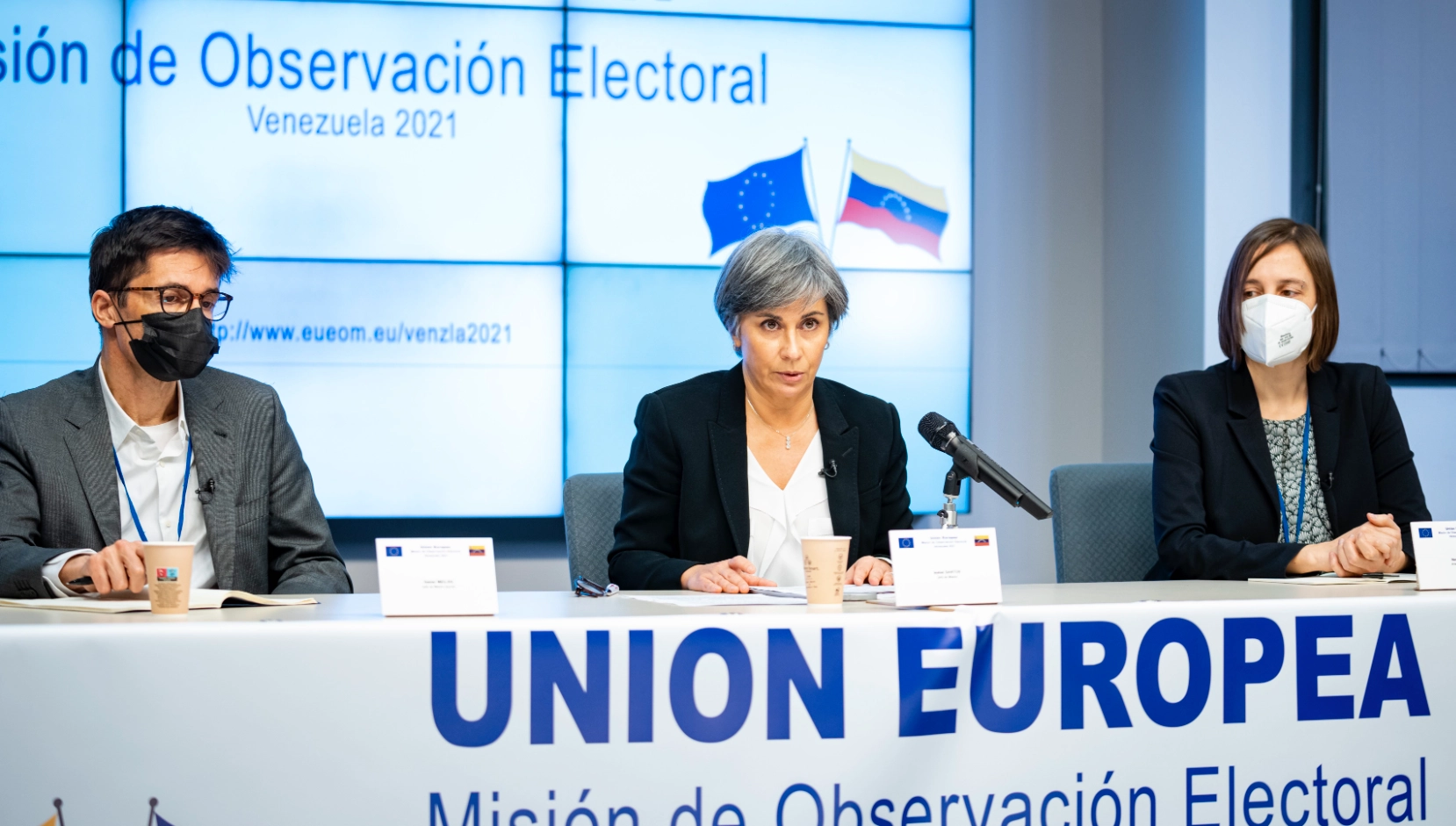International election observation is “the systematic, comprehensive and accurate gathering of information concerning the laws, processes and institutions related to the conduct of elections and other factors concerning the overall electoral environment; the impartial and professional analysis of such information; and the drawing of conclusions about the character of electoral processes based on the highest standards for accuracy of information and impartiality of analysis.” This is the definition included in the Declaration of Principles agreed upon by more than twenty international organizations and commemorated in an event held at the United Nations headquarters in New York in 2005.
It is important to be clear about the scope and limits of electoral observation, since recently, this figure has been perverted to legitimize elections under autocratic regimes in countries such as Venezuela, Russia, and Cuba.
Indeed, last Thursday, April 11, the president of the Venezuelan National Electoral Council and three times PSUV deputy, Elvis Amoroso, announced the signing of agreements with the Council of Electoral Experts of Latin America (CEELA) and the Parliamentary and Electoral Observatory for Regional Integration (OPEIR) to observe elections. Both organizations have a dubious independence at least, and, in the case of OPEIR, no experience whatsoever in observing electoral processes.
Carlos Aníbal López, representative of OPEIR, has clear links with the Argentine Justicialist Party (PJ). Throughout his career, he has held different positions, such as advisor to the General Secretariat of the Presidency and assistant secretary for Special Affairs of the Presidency of Cristina Fernández de Kirchner. As if that were not enough, he is a congressman of the PJ and a full member of the Patria Institute, the ideological powerhouse of Kirchnerism.
In the case of CEELA, the effort has been more sophisticated, since it is directed by Nicanor Moscoso, former president of the Electoral Tribunal of Ecuador, thus seeking a façade of technical profile. It was founded and financed by Venezuelan public funds 20 years ago, which transgresses the principle of financial independence and threatens the integrity of the organization, being a clear case of conflict of interest.
CEELA has been the organization that Chavism and Madurism have used to try to legitimize the electoral processes. Its efforts have gone so far that it even issued a report in the framework of the 2017 National Constituent Assembly elections that concluded that “the electoral process […] complied with international standards and national legislation, and was carried out satisfactorily,” even though the company that provided the technology to the electoral process denounced that the electoral participation was manipulated in at least one million votes. This is perhaps the process in which CEELA has been most exposed in Venezuela, something that has not prevented it from continuing to be accredited as an independent electoral observation organization even in other countries of the region and the world.
Moscoso made his organization available to “observe” the Russian elections held between March 15 and 17. Regarding these elections, he said that CEELA was able to “establish all the virtues of the Russian democratic system”, although Golos, Russia’s independent electoral monitor, assured that the largest scale fraud in the history of Russia was forged, irregularly adding 22 million votes for Putin.
This space also serves as a reminder that Grigory Melkonyants, co-chairman of Golos, was arbitrarily detained on August 17, 2023. Putin’s government has declared the organization “undesirable” and labeled it a “foreign agent.” This is the price paid by those who do genuine election observation under autocratic regimes.
The efforts of OPEIR and CEELA to legitimize the election and counter reports from Venezuela’s independent civil society were preceded by the governments of Xiomara Castro and Gustavo Petro, which have announced the sending of electoral missions to accompany the July 28 electoral process. In both cases, it is a more partisan accompaniment than an electoral observation exercise, since governments, having ideological and partisan interests, are prevented from carrying out electoral observation.
In their statements of April 11, Nicanor Moscoso and Carlos Aníbal López did not mention the illegal disqualifications against opposition candidates, especially the one against the winner of the opposition primaries, María Corina Machado, the judicial interventions to parties (including the Communist Party of Venezuela), the arbitrary detentions of members of Vente Venezuela, or those of Javier Tarazona or Rocío San Miguel. Neither did they refer to the obstacles for the registration or updating of the data of more than 10 million Venezuelans, both in Venezuela and abroad, basic issues in any technical and professional electoral observation exercise.
These issues cannot be left out of the analysis. According to the Declaration of Principles for International Election Observation, “International election observation examines conditions relating to the right to vote and to be elected, including, among other things, discrimination or other obstacles that hinder participation in electoral processes based on political or other opinion, gender, race, color, ethnicity, language, religion, national or social origin, property, birth or other status, such as physical disabilities”.
Technical, rigorous, and professional electoral observation has allowed for the improvement of numerous electoral processes. When properly carried out, the observers’ reports have presented recommendations that have served as a guide for electoral bodies and legislators to introduce reforms that result in broader and more pluralistic participation, as well as electoral processes with greater integrity.
Intervened or politicized electoral observation is a tool used by autocratic regimes to try to buy legitimacy and counteract the effects of independent organizations that base their findings on a rigorous, professional, and non-partisan methodology.
*Translated by Janaína Ruviaro da Silva from the original in Spanish.











